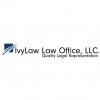
For over 30 years I've fought hard for consumers and small businesses in Maryland and Washington, D.C. I've put my heart and soul into helping people fight back against abusive bill collectors and the big banks that can make you live your life in fear. We stop foreclosures, garnishments, levies, lawsuits, and bill collectors. The bottom line is this: our job is to take care of you, and to make sure that you get the help you need to fix your debt problems.
Meet with one of our experienced attorneys for an in-depth consultation to analyze your situation and discuss available solutions. File your case to automatically stop foreclosures, garnishments, repossessions, and lawsuits, get time to catch up on your mortgage, car, and taxes, and legally wipe out most or all of your debts.
There are three main types of consumer bankruptcy: Chapter 7, Chapter 11, and Chapter 13. (Chapter 12 covers family farmers, Chapter 9 is for cities and counties, and Chapter 15 deals with international bankruptcies.)
Meet with one of our experienced attorneys for an in-depth consultation to analyze your situation and discuss available solutions. File your case to automatically stop foreclosures, garnishments, repossessions, and lawsuits, get time to catch up on your mortgage, car, and taxes, and legally wipe out most or all of your debts.
There are three main types of consumer bankruptcy: Chapter 7, Chapter 11, and Chapter 13. (Chapter 12 covers family farmers, Chapter 9 is for cities and counties, and Chapter 15 deals with international bankruptcies.)
Services
Individuals
Report
You want to pay your bills.
But it seems that there's always too much month left at the end of the money.
The credit card companies, bill collectors, and payday loan folks don't care -- all they want is their money.
And the reasons why people can't pay their bills usually aren't their fault.
The closing went by in a blur, a pile of papers to sign.
Maybe they explained them to you, maybe not.
You signed whatever they put in front of you, anxious to get it over with and move into the home you'd worked so hard to get.
But it seems that there's always too much month left at the end of the money.
The credit card companies, bill collectors, and payday loan folks don't care -- all they want is their money.
And the reasons why people can't pay their bills usually aren't their fault.
The closing went by in a blur, a pile of papers to sign.
Maybe they explained them to you, maybe not.
You signed whatever they put in front of you, anxious to get it over with and move into the home you'd worked so hard to get.
I Want to Save My Home
Report
The closing went by in a blur, a pile of papers to sign.
Maybe they explained them to you, maybe not.
You signed whatever they put in front of you, anxious to get it over with and move into the home you'd worked so hard to get.
Everyone was in such a good mood at the closing.
The brokers, the title closers, the lawyers, even the bank were smiling and happy, congratulating you on your bright future.
That first month, you paid what you could.
It wasn't enough to make the full payment, but you wanted the mortgage company to know you were trying to live up to your end of the bargain.
Maybe they explained them to you, maybe not.
You signed whatever they put in front of you, anxious to get it over with and move into the home you'd worked so hard to get.
Everyone was in such a good mood at the closing.
The brokers, the title closers, the lawyers, even the bank were smiling and happy, congratulating you on your bright future.
That first month, you paid what you could.
It wasn't enough to make the full payment, but you wanted the mortgage company to know you were trying to live up to your end of the bargain.
I'm Behind on Bills
Report
Health issues, job loss or job change, separation and divorce, and wages that simply do not keep up with the ever-spiraling cost of living.
These are just some of the reasons why so many honest, hard-working individuals and families in Maryland and Washington, D.C. find themselves in financial distress.
And, contrary to what the credit industry tells you, none of these things has anything to do with financial irresponsibility, lack of hard work, or spending too much on Starbucks.
They are simply bad things that sometimes happen to good people.
These are just some of the reasons why so many honest, hard-working individuals and families in Maryland and Washington, D.C. find themselves in financial distress.
And, contrary to what the credit industry tells you, none of these things has anything to do with financial irresponsibility, lack of hard work, or spending too much on Starbucks.
They are simply bad things that sometimes happen to good people.
Am I a Bad Person If I File Bankruptcy
Report
It's not because I'm a bad guy, or that I treat my clients poorly-just the opposite.
My clients are shown respect and understanding, and both my staff and I give them a ready ear to hear their problems.
So why don't people want to meet with me?
It's because almost all people who file for bankruptcy feel embarrassed.
They feel that they are a failure.
They feel ashamed that they cannot pay their bills, or that they are faced with a foreclosure, or a lawsuit.
They feel completely alone, a pariah with a large letter "B" tattooed on their forehead that people will point to and turn away.
My clients are shown respect and understanding, and both my staff and I give them a ready ear to hear their problems.
So why don't people want to meet with me?
It's because almost all people who file for bankruptcy feel embarrassed.
They feel that they are a failure.
They feel ashamed that they cannot pay their bills, or that they are faced with a foreclosure, or a lawsuit.
They feel completely alone, a pariah with a large letter "B" tattooed on their forehead that people will point to and turn away.
Chapter 13
Report
Chapter 13 lets you pay back some or all of your creditors, usually over three to five years.
You must have less than $1,257,850 in secured debt and less than $419,275 in unsecured debt to qualify for Chapter 13.
Chapter 13 stops a foreclosure and gives you time to catch up on the amount you're behind.
It can stop wage garnishments, bank attachments, liens and levies (even IRS tax levies).
It also has a special provision that protects co-signers or people who have guaranteed your consumer debts from collections during your case.
You must have less than $1,257,850 in secured debt and less than $419,275 in unsecured debt to qualify for Chapter 13.
Chapter 13 stops a foreclosure and gives you time to catch up on the amount you're behind.
It can stop wage garnishments, bank attachments, liens and levies (even IRS tax levies).
It also has a special provision that protects co-signers or people who have guaranteed your consumer debts from collections during your case.
Reviews

Be the first to review Brett Weiss, Attorney At Law.
Write a Review


